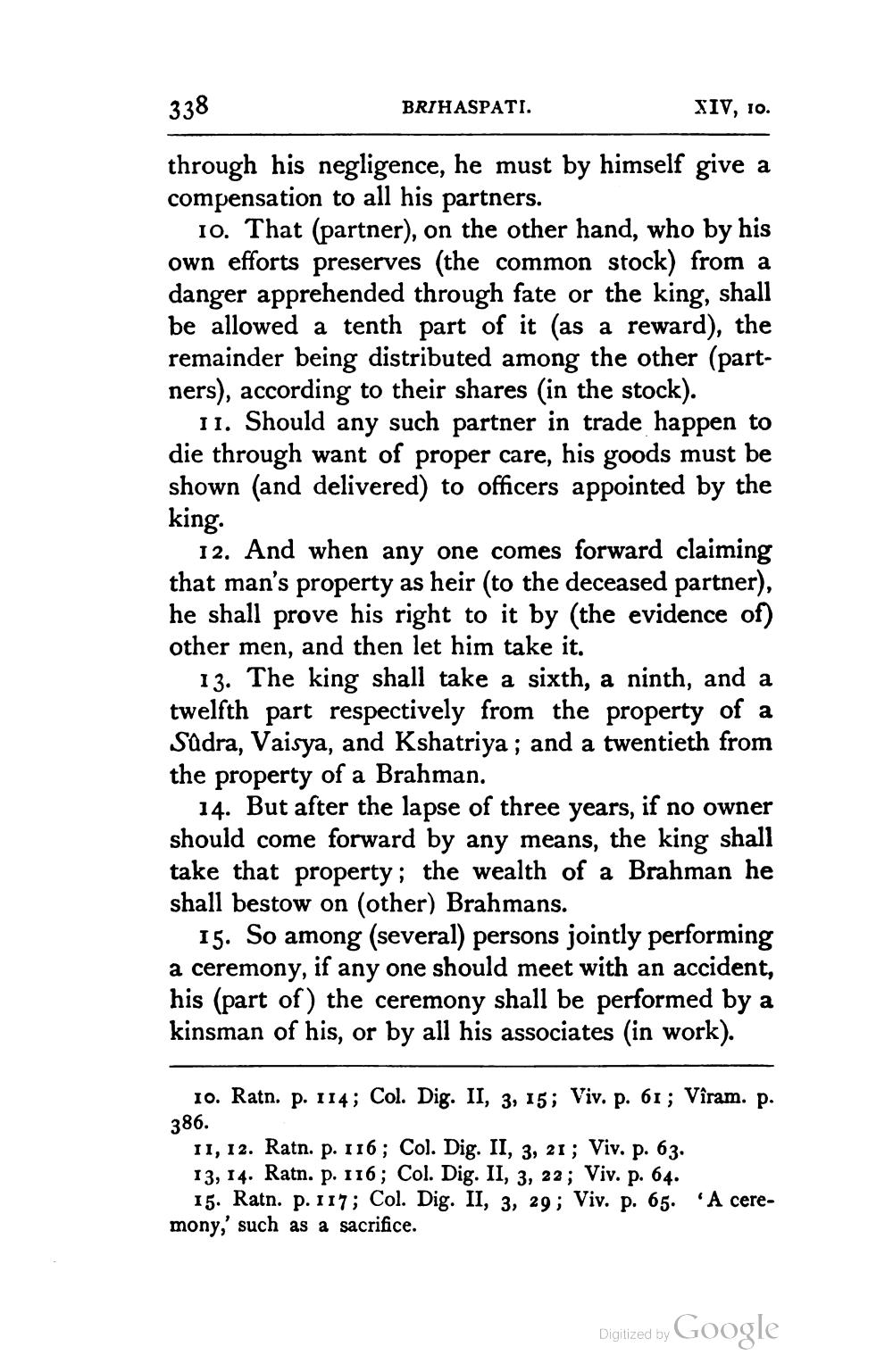________________
338
BRIHASPATI.
XIV, 10.
through his negligence, he must by himself give a compensation to all his partners.
10. That (partner), on the other hand, who by his own efforts preserves (the common stock) from a danger apprehended through fate or the king, shall be allowed a tenth part of it (as a reward), the remainder being distributed among the other (partners), according to their shares in the stock).
11. Should any such partner in trade happen to die through want of proper care, his goods must be shown (and delivered) to officers appointed by the king.
12. And when any one comes forward claiming that man's property as heir (to the deceased partner), he shall prove his right to it by (the evidence of) other men, and then let him take it.
13. The king shall take a sixth, a ninth, and a twelfth part respectively from the property of a Sudra, Vaisya, and Kshatriya ; and a twentieth from the property of a Brahman.
14. But after the lapse of three years, if no owner should come forward by any means, the king shall take that property; the wealth of a Brahman he shall bestow on (other) Brahmans.
15. So among (several) persons jointly performing a ceremony, if any one should meet with an accident, his (part of) the ceremony shall be performed by a kinsman of his, or by all his associates (in work).
10. Ratn. p. 114; Col. Dig. II, 3, 15; Viv. p. 61; Vîram. p. 386.
11,12. Ratn. p. 116; Col. Dig. II, 3, 21; Viv. p. 63. 13, 14. Ratn. p. 116; Col. Dig. II, 3, 22; Viv. p. 64.
15. Ratn. p. 117; Col. Dig. II, 3, 29; Viv. p. 65. 'A ceremony, such as a sacrifice.
Digitized by Google




